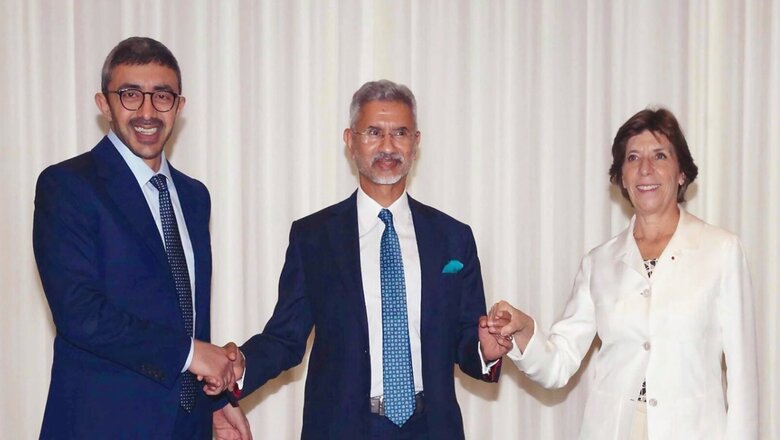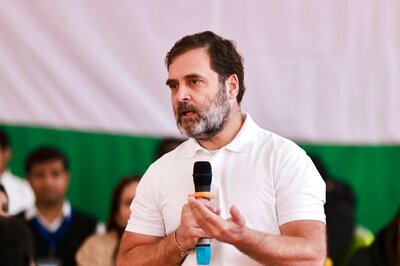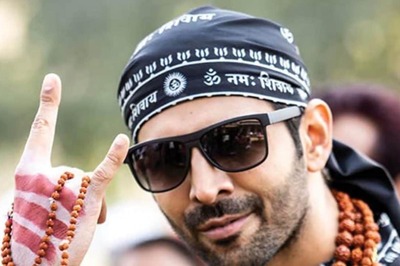
views
India, France, and the UAE recently unveiled an ambitious roadmap for a trilateral initiative to undertake ventures in a variety of fields such as defence, technology, and energy, with an emphasis on solar and nuclear sources, climate change, and biodiversity, particularly in the Indian Ocean region. A joint statement released by the parties involved stated the trilateral initiative will serve as a platform to “promote the design and execution of cooperation projects in the fields of energy, with a focus on solar and nuclear energy”.
In September of last year, on the margins of the United Nations General Assembly in New York, the foreign ministers of France, Catherine Colonna; India, S Jaishankar and the United Arab Emirates (UAE), Sheikh Abdullah bin Zayed Al Nahyan met for the first time in a trilateral format. During a follow-up phone discussion on February 4, 2023, the foreign ministers of the three nations agreed to develop a plan for the implementation of this trilateral initiative.
According to a statement released by the Indian side, the countries would hold trilateral events in tandem with India’s G20 presidency and the UAE’s hosting of the COP28 climate negotiations this year. The India-UAE-France Trilateral is the latest addition to India’s growing minilateral engagements in the Indian Ocean Region.
India’s Growing Minilateral Engagements
In recent years, India’s bilateral engagement with both France as well as the UAE has grown. The three countries have worked together in a variety of fields, including commerce, defence, energy, and culture. They have significant strategic and commercial ties and collaborate in various regional and international institutions such as the UN and the G20.
India-UAE partnership has expanded in recent years, with the UAE being India’s third biggest trading partner and a key supplier of energy supplies. France and India have also deepened their ties, notably in the defence and security sectors. The three nations’ recently established trilateral effort demonstrates their shared values and commitment to maintaining peace and stability throughout the Indo-Pacific region and beyond.
Defence was identified by the stakeholder countries as a key area for fostering closer cooperation in the recently announced trilateral framework, and therefore, efforts are underway “to further promote compatibility, joint development, and co-production, whilst also seeking out avenues for further collaboration and training between the three countries’ defence forces”. One may argue that the fact that both India and the UAE have acquired French Rafale fighters has naturally led to aspirations to forge stronger defence partnerships.
India, the UAE, and France are also attempting to increase their cooperation through initiatives such as the UAE-led Mangrove Alliance for Climate and the India-France led Indo-Pacific Parks Partnership. Focus would be placed on important concerns including single-use plastic pollution, desertification, and food security within the context of the International Year of Millets. The members also decided to look into the prospect of collaborating with the Indian Ocean Rim Association on projects involving sustainable energy, the environment, and biodiversity.
India, France, and the UAE also agreed to strengthen cooperation to ensure that their respective economic, technological, and social policies are more aligned with the goals of the 2015 Paris Agreement to combat climate change, and will seek to accelerate actions and investments required for a sustainable low-carbon future. With increased convergence of their respective economic, technological, and social policies, the trilateral effort will serve as a forum for the three countries’ development agencies to collaborate on long-term, sustainable projects. One such endeavour would be to improve exchanges on emerging infectious disease threats and pandemic preparedness.
The trilateral statement also included a notable mention of the circular economy. The three countries expressed a strong desire to collaborate in the field of circular economy under the auspices of India’s Mission LiFE (Lifestyle for Environment). Deepening Indo-Pacific cooperation, with a focus on maritime security, regional infrastructure and connectivity, energy and food security, and supply chain resilience, were all significant subjects of discussion.
Recent years have seen a number of bilateral and minilateral endeavours dominating India’s relations with foreign nations. For example, India and the UAE are members of the I2U2 group, which consists of India, Israel, the UAE, and the United States and focuses on economic and technological cooperation. These minilaterals have also grown in importance because India’s bilateral connections with each of these new security partners are rooted in specific, common concerns and interests. This is especially relevant in light of the constantly changing strategic and security dynamics in the Indo-Pacific. Experts feel that getting a diverse range of countries into Indo-Pacific minilaterals is an important part of India’s Indo-Pacific strategy.
Last year was the first time that the United Arab Emirates participated in the annual Varuna exercise hosted by India and France. Given their shared strategic interests and strong bilateral connections, the India-France-UAE trilateral is likely to emerge as a powerful and diversified partnership that will shape the Indo-Pacific strategic dynamics, whether it be in terms of maritime security, infrastructure, or connectivity.
Conclusion
The India-UAE-France Trilateral Cooperation signifies India’s growing participation in several regional and international groupings and the subsequent elevation in India’s strategic position in the international world order. When it comes to India’s strategic manoeuvring, issue-based and interest-based alliances provide the country with the optimal degree of flexibility, especially in the Indo-Pacific region.
It is not an overstatement to suggest that the trilateral has the ability to push many of the stakeholder countries’ shared traditional as well as non-traditional security objectives further and that it will have far-reaching implications for the region and beyond.
Esha Banerji is presently associated with a premier think-tank in India, specialising in defence, security, and strategic studies. Her research interest and focuses of analysis are defence strategy, geo-economics, foreign affairs, and the implications of Chinese security developments on the region, especially India. Views expressed are personal.
Read all the Latest Opinions here




















Comments
0 comment